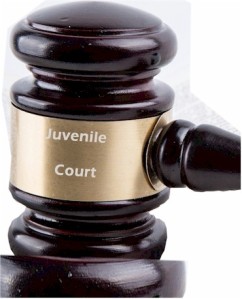In Tennessee, juvenile courts have original, exclusive jurisdiction over cases involving m inors. A minor is anyone under the age of 18, however, state law gives juvenile courts jurisdiction to to age 19 for someone who has come under its jurisdiction as a minor under age 18. Shelby County Juvenile Court Judge Dan H. Michael is proposing to the Tennessee General Assembly that Juvenile Courts retain jurisdiction of a minor with a case in juvenile court until that person turns 25 years old, adding six years to the court’s oversight of a young offender. Judge Michael has asked the Shelby County Commission to support his proposal.
inors. A minor is anyone under the age of 18, however, state law gives juvenile courts jurisdiction to to age 19 for someone who has come under its jurisdiction as a minor under age 18. Shelby County Juvenile Court Judge Dan H. Michael is proposing to the Tennessee General Assembly that Juvenile Courts retain jurisdiction of a minor with a case in juvenile court until that person turns 25 years old, adding six years to the court’s oversight of a young offender. Judge Michael has asked the Shelby County Commission to support his proposal.
A Memphis Conversation examines the proposal to extend juvenile court’s jurisdiction, considers possible motivations for the idea, and ponders the ramifications of such a change in the law.
Before you begin to listen, we have a few updates, clarifications, and corrections.
– During this discussion, we refer to the proposal to permit juvenile court to maintain jurisdiction over an offender through age 25 to age 26. It appears the proposal is for the juvenile court to have jurisdiction until age 25, a difference which does not affect the comments expressed here.
– A reference is made to the Memphis City Council having before it for consideration an ordinance permitting the local police to issue a summons on an ordinance violation rather than charging the individual with the state law violation if a person is being cited for possession of an ounce or less of marijuana. The ordinance has since been passed by the council, however, the correct amount applicable under the new city ordinance is one-half ounce.
– We talk about the “age of consent” under Tennessee law as it applies to a person’s capability in making decisions in sexual relations and how that might relate to the maturity of the brain. Tennessee law on statutory rape is complex and what constitutes statutory rape and/or the punishment for such a crime varies according to the age of the younger person involved and the age difference between that person and the older person involved.
– Reference is made to a homicide of a member of San Francisco Board of Supervisors in 1978 and that the perpetrator of the crime was acquitted based on what has become called the Twinkie defense (a mental state purported to be the result of eating the sweet cakes known as Twinkies). It is true the defendant was acquitted of a first degree murder charge but he was convicted of voluntary manslaughter of two victims.
Duration: 41 minutes, 36 seconds